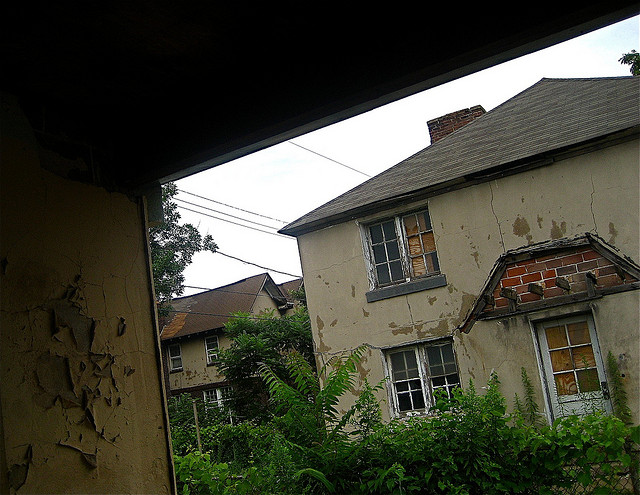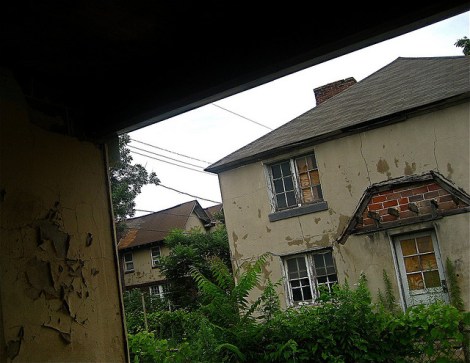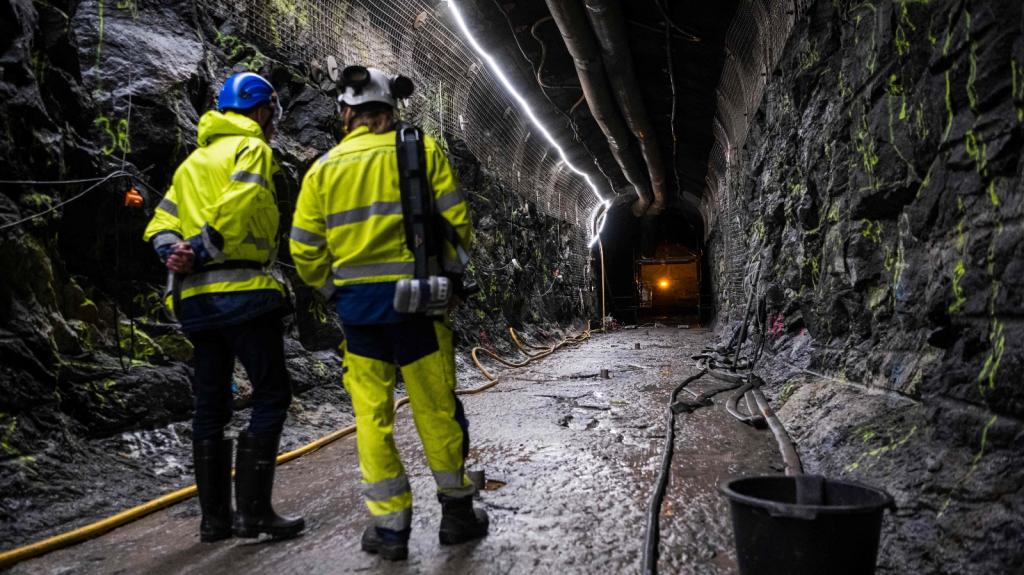This is the historic neighborhood of Marktown, near East Chicago, Ind. It’s a historic area, built a century ago to accommodate workers at a nearby steel plant, dubbed one of the “Seven Wonders of Northwest Indiana.”
[protected-iframe id=”53a748abde4698b6469e3ebad885c8c0-5104299-30178935″ info=”https://maps.google.com/maps?gl=us&ie=UTF8&t=h&ll=41.658846,-87.467415&spn=0.002805,0.005043&z=17&output=embed” width=”470″ height=”350″ frameborder=”0″ scrolling=”no”]
Now zoom out.
Marktown is like that house in Up, surrounded on all sides by newer, uglier buildings — in this case, industry. Scroll to the northwest a little and you’ll see Marktown’s greatest threat: the BP Whiting oil refinery. Midwest Energy News tells the story:
About a quarter of the pastel, stucco Marktown homes are now vacant and crumbling. There is a general appearance of abandonment and decay. But on the evening of Jan. 23 the Marktown community center was bustling, packed with residents confused and alarmed about the news circulating over the past few days. …
Kim Rodriguez, a 54-year-old lifelong resident, had called the meeting to try to save the neighborhood.
That’s because BP officials recently acknowledged they are looking to buy up and raze Marktown homes.
The state of Indiana has recognized the neighborhood as a historic area. But that doesn’t matter.
In 1975 Marktown — which is officially part of the city of East Chicago, while the refinery is in adjacent Whiting — was placed on the National Register of Historic Places. That means federal resources cannot be used for redeveloping or destroying structures.
But the historic designation offers no such protection against private development or demolition by an entity like BP.
Dean said that, “BP respects the historical designation of the Marktown Community and is exploring preliminary possibilities related to the historic designation,” though he also said that “once acquired, the property would be razed.”
The full story (go read it!) is distressing and sad, outlining an encroachment of wealth and industry on history and community. And then, everything else aside, there’s why BP wants the property. The company wants to displace families and destroy historic homes because it wants a place to stage equipment.
And it needs more parking.
And it wants some green space.





